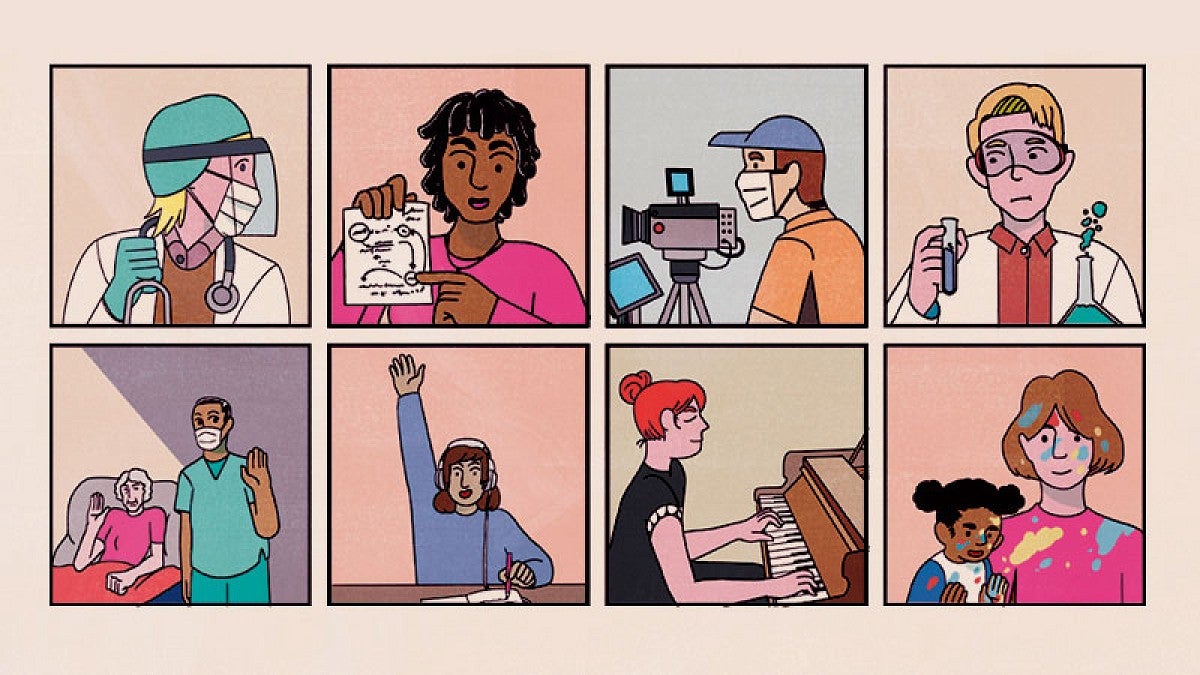The Oregon Bach Festival will stream its premiere of “An American Mosaic,” a new work by Grammy-winner Richard Danielpour the festival commissioned to reflect on the COVID-19 pandemic.
Danielpour has been collaborating with New York pianist Simone Dinnerstein on the series of short piano pieces since last summer. The virtual world premiere will be at 2 p.m. Dec. 6, and the festival hopes to include a live, in-person performance during its upcoming 2021 festival.
“We are honored to commission this important work,” said Michael Anderson, the festival’s director of artistic administration. “These inspiring piano pieces, created through virtual collaboration across the country and premiered online for the world, reflect this challenging moment in history.”
Part of the festival’s mission is to make classical music current and relevant, and this project is a compelling example, Anderson said. The latest in a long line of distinguished works commissioned by the festival, “An American Mosaic” includes 15 piano miniatures that paint instrumental portraits of Americans who have heroically suffered during this global pandemic.
One of the pieces honors caretakers and research physicians. Another celebrates parents and children. In what Danielpour calls “an elegy for our time,” the middle section is a tribute to those who have died from the virus.
“I want, through Simone, to bring people together at a time when we are physically separated,” Danielpour said. “I want music to redefine the ability of what it means to recognize we are all members of the same family: the human race.”
Four of the miniatures, which Danielpour refers to as consolations, will weave together variations on a theme that create a piece within a piece. These four consolations, Danielpour said, will conjure images of angelic figures that come to comfort, even cry with, those who have suffered.
In 2018, the festival commissioned and premiered Danielpour’s “The Passion of Yeshua,” later performed in Los Angeles and New York. Naxos released a recording of the work this year.
Danielpour’s other commissions include Yo-Yo Ma, Jessye Norman and Dawn Upshaw; the Guarneri and Emerson string quartets; and the New York City, Pacific Northwest, and Nashville ballets. And he’s worked with the New York Philharmonic, Philadelphia Orchestra, and the Maryinsky and Vienna chamber orchestras and with Nobel Laureate Toni Morrison, Danielpour created his first opera, “Margaret Garner.”
A student of Leonard Bernstein and one of the most recorded composers of his generation, Danielpour works on behalf of the next generation as a mentor and educator. He’s a professor of music at the Herb Alpert School of Music at the University of California, Los Angeles and a member of the faculty of the Curtis Institute of Music, where he’s taught since 1997.
Although he’s been collaborating virtually with Dinnerstein, Danielpour doesn’t use a computer to compose. Like all his compositions, he wrote “An American Mosaic” by hand, playing everything he writes first, then sending his music out for engraving.
“I use my ears, a piano, a pencil and paper,” he said. “Everyone else uses technology. I’m hopelessly 20th century.”
Despite this, Danielpour doesn’t think technology will make the virtual premiere any less meaningful.
“Music is music, whether it is live or shared through technology,” he said. “I’m using this work to embrace every person I can who has been heroic through this crisis and has prevailed.”
—By Ed Dorsch, University Communications


